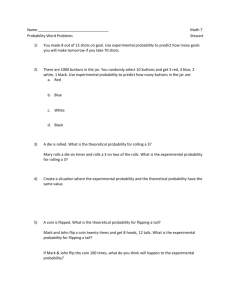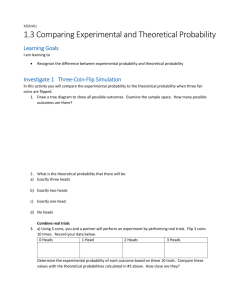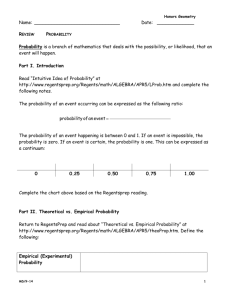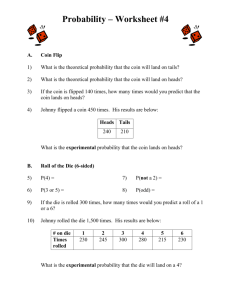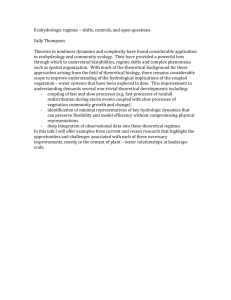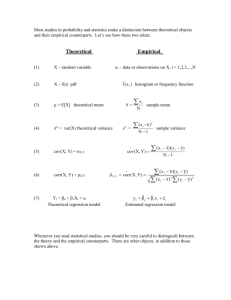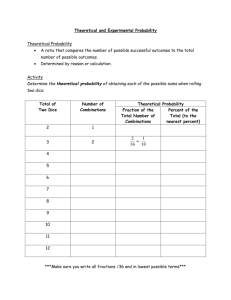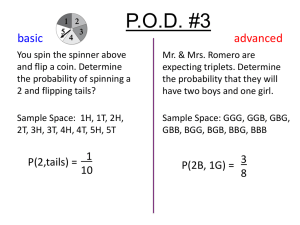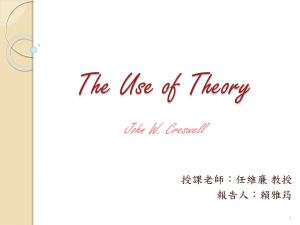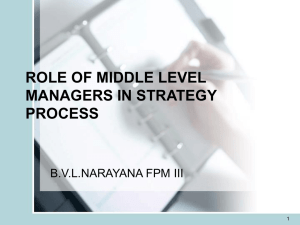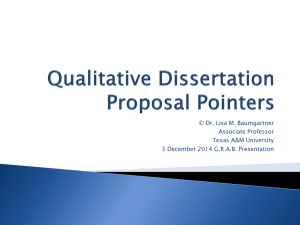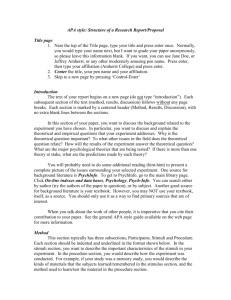Theoretical and Experimental Probability (doc)
advertisement
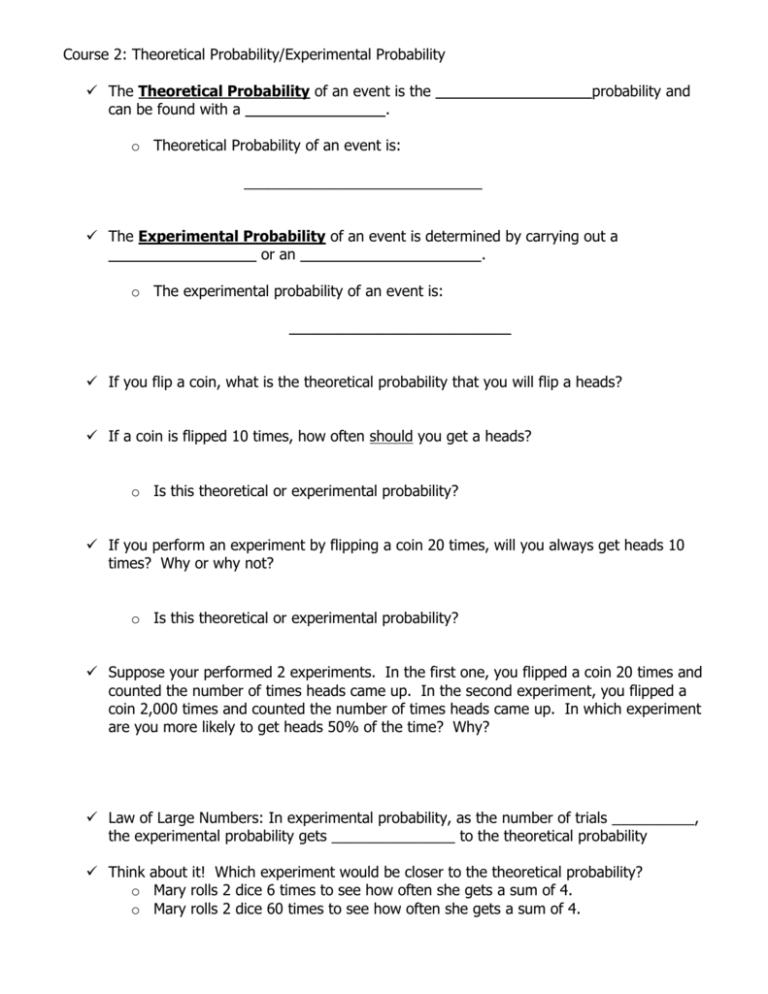
Course 2: Theoretical Probability/Experimental Probability The Theoretical Probability of an event is the ___________________probability and can be found with a _________________. o Theoretical Probability of an event is: _____________________________ The Experimental Probability of an event is determined by carrying out a __________________ or an ______________________. o The experimental probability of an event is: ___________________________ If you flip a coin, what is the theoretical probability that you will flip a heads? If a coin is flipped 10 times, how often should you get a heads? o Is this theoretical or experimental probability? If you perform an experiment by flipping a coin 20 times, will you always get heads 10 times? Why or why not? o Is this theoretical or experimental probability? Suppose your performed 2 experiments. In the first one, you flipped a coin 20 times and counted the number of times heads came up. In the second experiment, you flipped a coin 2,000 times and counted the number of times heads came up. In which experiment are you more likely to get heads 50% of the time? Why? Law of Large Numbers: In experimental probability, as the number of trials __________, the experimental probability gets _______________ to the theoretical probability Think about it! Which experiment would be closer to the theoretical probability? o Mary rolls 2 dice 6 times to see how often she gets a sum of 4. o Mary rolls 2 dice 60 times to see how often she gets a sum of 4. Course 2: Theoretical Probability/Experimental Probability The Theoretical Probability of an event is the expected probability and can be found with a formula. o Theoretical Probability of an event is: Number of possible favorable outcomes Total number of possible outcomes The Experimental Probability of an event is determined by carrying out a simulation or an experiment. o The experimental probability of an event is: Number of times desired outcomes occur Number of trials in the experiment In experimental probability, as the number of trials increases, the experimental probability gets closer to the theoretical probability (Law of Large Numbers) Think about it! Which experiment would be closer to the theoretical probability? o Mary rolls 2 dice 6 times to see how often she gets a sum of 4. o Mary rolls 2 dice 60 times to see how often she gets a sum of 4. SECOND (Roll dice 60 times.)
